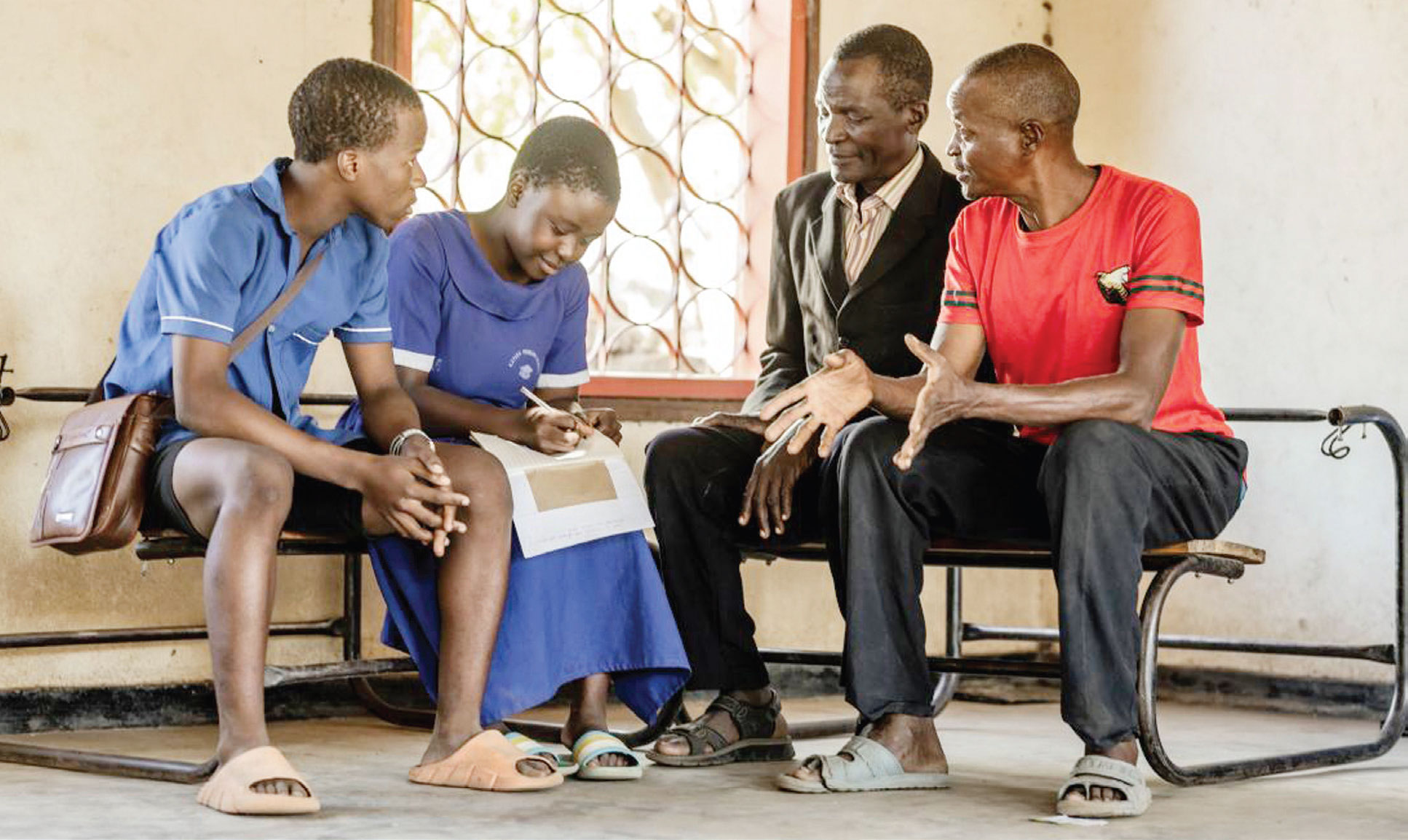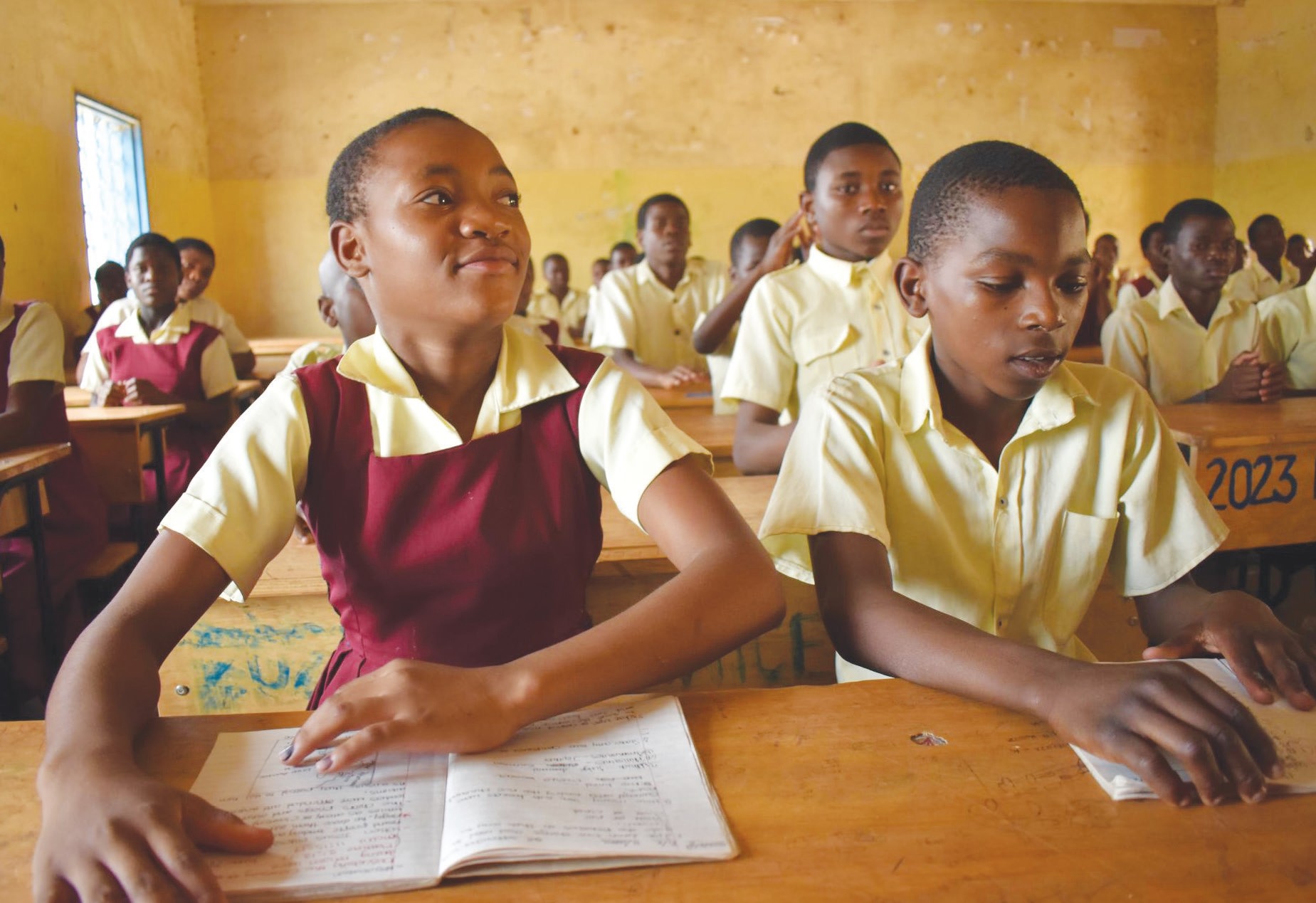Sanitation for girls education
 Ngabaghila Chatata, national coordinator for Water and Environmental Sanitation, recalls vividly the time she started menstruating.
Ngabaghila Chatata, national coordinator for Water and Environmental Sanitation, recalls vividly the time she started menstruating.
“When I told my mum, she referred me to a neighbour who advised me to take a long shower, which I did,†Chatata says.
Recently, she spoke of how difficult it is for girls to adapt to this change in their lives.
“I remember sitting at the edge of a bench in my classroom so that nobody would realise what had happened to me,†she says.
This is why, as coordinator for WES, a network of non-governmental organisations that deal with water, sanitation and hygiene she is using her personal experience to help girls in the country.
She says the secrecy that surrounds menstruation leaves girls ignorant of how to properly look after themselves.
“Open discussion of menstrual hygiene management remains unpopular, with most people considering it a taboo,†she says.
She is right. For many years, menstruation has been treated as a taboo subject.
Even Village Head Mayenje of Traditional Authority Mazengera in Lilongwe agrees that the matter remained secret in her childhood.
“When it happened, we would just talk about it with our peers and not our parents because it was embarrassing to do so,†she adds.
She also says when a girl reached puberty, she would be sent to elderly women from the village or church to talk to her.
Even now, across different generations, menstruation and its management is still a sticky issue.
Realising the seriousness of Menstrual Hygiene and Management (MHM) and its implications, an NGO Water Aid in conjunction with Sanitation and Hygiene Applied Research for Equity (Share) did a study last year and discovered that poor MHM has led to poor access to education by girls.
According to Chatata, the study found that girls tend to miss classes or fail to concentrate when they are menstruating for fear of being discovered and mocked by boys.
“The responsibility is pushed to the aunts and other elders. While at school, the girl child mostly has to figure it out by herself. There is no-one to take them through the process step by step,†she says.
She adds that the environment does not help matters.
“She [the girl] is confronted by boys who are keen to embarrass her when things go wrong. The facilities are not conducive of her—there are no sanitary pads, disposal bins or privacy. All this impedes on her performance and interest in education,†explains Chatata.
The research, titled School Menstrual Hygiene Management in Malawi: More than Toilets also carry insightful voices from the girls.
“Nobody cares about the toilets here. We have no doors and no water. It is better to stay at home when you menstruate. We go to the toilet, and then we eat with faeces or blood in our hands. I only have one uniform, so when I stain my skirt, I go home and stay there until my skirt is dry.â€
These were some of the remarks by secondary school girls who were asked to choose why they miss classes among family matters, malaria and other illnesses. Menstruation turned out to be one of the main issues.
They also said given chance to choose among aspirin drug, girls’ club, a bin, soap, incinerator, water and sanitary pads, they would prioritise sanitary pads.
Following the study, World Universities Services of Canada (WUSC) has introduced a project that seeks to support girls’ in this area. With K700 000 (about $2 121), WUSC is training rural women in making sanitary pads using locally available materials to keep girls in school.
“We are promoting the pads made in the villages because the ones bought from shops are expensive,†explains WUSC executive director Jacob Mapemba.
Village Head Mayenje, who participated in the training, says materials used to make the pads are foam, a piece of cloth and a bathing towel. These are purchased from shops and torn into pieces to make several pads.
“This flex foam cost us K500 [$1.50], but from this sheet, we will make 56 pads,†said a training facilitator who taught women belonging to village groups called Mother Groups, whose function is to promote the well-being of girls through counselling.
Three pads are packed in a small bag. They are reusable after washing with soap and drying. The bag also contains information booklet in Chichewa.
“The pads have strings to tie them to underpants for the girls to be free to jump up and down without fearing that they would drop,†says Catherine Mndeke from the Mother Groups.
The initiative solves one of the challenges highlighted in the research that most girls reported using a rag from old clothes folded into a pad which they would tie with a string around their waist.
“The girls reported multiple problems with menstrual cloth smelling or dropping at school, causing embarrassment,†the research found.
The research also found that girls’ knowledge of the emotional upheaval of adolescence and of their own reproductive health was negligible. Ignorance in this area contributed to inability to manage their menstruation at school, being prey to sexual aggression and male bullying, as well as apathy around intolerable toilet facilities.
Â





